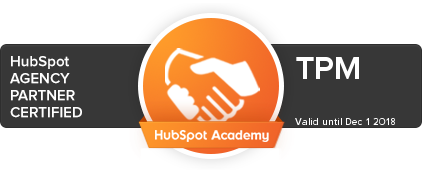The past decade saw a power transition. As the face of retail changed, consumers took control and began demanding more from companies in exchange for their loyalty. And it didn’t take long for that trend to spread. Going into the next decade, marketers — including those working in B2B sales — are amping up efforts to keep their clients happy. And they’re investing heavily in new marketing technology for 2020.
Data from Forrester Research indicates that more than 70% of B2B companies are increasing their marketing budgets for the coming year — and 60% are planning to invest more in new marketing technology in 2020. But as you face the new year and the new levels of competition it brings, how do you ensure you make your marketing investments count?
Marketing is going high-tech. It’s not just about how many blog posts you publish or how many Twitter followers you have. B2B marketing experts are leveraging new technology to up their game. In this post, we’ll examine some of the latest marketing tech trends and compare the pros and cons of each. Let’s get started.
3 Marketing Technology Trends in 2020
1. Automating and Consolidating Platforms
As buyers become increasingly demanding, many sales and marketing professionals are turning to their software platforms to ease the burden of meeting those demands. Experts predict the marketing automation software industry will grow from 2019’s $3.3 billion to $6.4 billion by 2024.

Automating and consolidating your market efforts onto a single platform can decrease your marketing workload, improve efficiency, and eliminate errors associated with manual processes. AI tools that can segment your audience, identify leads, and nurture them with content developed to meet their individual needs is a critical piece of new marketing technology that will see increased use in 2020.
Pros
- Saves time and money
- Ideal for key marketing tasks of lead generation and nurturing
- Works for any industry
Cons
- Takes some time and effort to implement properly
- Runs the risk of depersonalization if over/incorrectly used
Venture Harbor data says 79% of top-performing companies have employed marketing automation for at least three years. Are you planning to leverage this marketing technology in 2020?
2. Conversational Marketing and Chatbots
Often simply referred to as “chat,” the latest iteration of conversational marketing is the result of a combination of humans’ desire to talk and developing technologies that facilitate that. What started as having human sales representatives ready to answer questions and solve problems in a physical store has evolved over time.
But while previous technological developments only changed the medium over which chats took place, something new has joined the conversation: artificial intelligence. Consumers visiting your site can initiate a conversation with a chatbot that can answer basic questions, and transfer them to a human representative if they need a more in-depth response.
Pros
- Easy to scale as customer demand grows
- Serves customers when and where they choose
- Provides data on your customers
Cons
- Can be costly and time-consuming to implement
- AI chatbots can’t always respond the same way humans do (steering a conversation, addressing a crisis)
For good or for ill, Gartner has predicted that chatbots will power 85% of customer service interactions by the end of next year. Are you prepared to compete with that?
3. Leveraging Data to Hyper-Target Markets
Efforts to personalize marketing to our audiences are not new. For years, marketers have gone to great lengths to get inside the mind of their target market and craft a message that seemed custom-prepared just for them. We’ve developed buyer personas and explored the buyer journey. But new marketing technology in 2020 is building on those tactics in ways you can’t afford to miss.

The amount of data we as humans generate on any given day is staggering. And companies that are collecting and analyzing that data to better understand their target market are the ones who will get ahead. The use of customer analytics has a significant impact on sales, growth, profitability and the ROI of new marketing technology.
Pros
- Serving more relevant content to your target market
- Provides better value to your audience
Cons
- More specific audiences mean creating more content to achieve personalization
- Incorrectly implemented, you can miss leads who don’t meet hyper-targeting qualifications
More than half of buyers say they’re ready to trade their data for a better, more personalized experience. Are you taking your customers up on this?
Stay Current on New Marketing Technology in 2020
If the last decade has taught us anything, it’s that change in the B2B marketing industry is continual. You can’t just “set it and forget it” with your marketing techniques, tools, or strategy. At Total Product Marketing, we stay current on all the latest marketing developments to provide our clients with the most effective, efficient ways to reach their audiences. If you have questions about your marketing strategy or tools, talk to us today.



